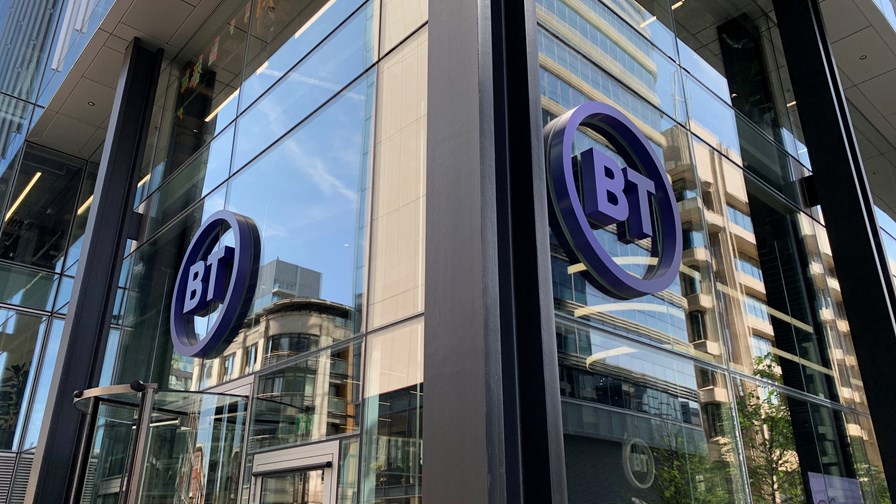What’s up with… BT and Cisco, Jio Platforms, enterprise 5G integrators

By TelecomTV Staff
Oct 5, 2022

- BT and Cisco team up on tech kit recycling
- Jio Platforms claims traction for its 5G software stack
- Who are the leading enterprise 5G integrators?
In today’s industry news roundup: BT and Cisco do their bit for the circular economy; Jio Platforms claims traction with international operators for its telco software stack; ABI Research identifies the leading enterprise 5G systems integrators; and more!
BT has teamed up with Cisco Systems on “a new programme aimed at reducing business customers’ e-waste by recycling end-of-life equipment and helping them achieve their targets for a circular economy”. Hriday Ravindranath, chief product and digital officer at BT’s global unit, noted: “E-waste is a growing concern and, according to WEF [the World Economic Forum], is now the fastest-growing waste stream in the world. Our customers and partners have made commitments to report on and improve performance in this critical area. Creating a more sustainable, circular economy, where we prioritise dematerialisation and avoid equipment going to landfill, is vital. It builds on our leadership in sustainability and will help deliver on our BT Group Manifesto commitments and ambition to connect for good.” Read more.
Jio Platforms, the digital business unit of Indian conglomerate Reliance Industries Ltd (RIL) that counts mobile and broadband operator Reliance Jio as part of its portfolio, is reportedly making headway to sell its 5G software stack to network operators outside of India, according to a report in The Economic Times, which cites a Jio executive as its source. Jio Platforms recently set out its software stack stall at the Digital Transformation World 2022 event in Copenhagen, noting that its platforms-as-products (PaPs) approach to research and development enabled it to use the software in its own network in India and sell proven, carrier-grade technology to other operators – see Watch out, vendors! Here comes Jio’s PaPs.
Meanwhile, ahead of its full service launch, Reliance Jio has started offering 5G services in four cities – Delhi, Mumbai, Kolkata and Varanasi – according to India Today, capping five days of intense 5G activity in India that centred on the India Mobile Congress show that finished yesterday – see India is bullish on 5G as the first networks are launched.
ABI Research has crowned Hewlett Packard Enterprise (HPE), NTT, Atos and Capgemini Engineering as the systems integrators (SIs) with the best enterprise 5G offerings. To be regarded as the leaders in this increasingly important sector, the integrators must “design solutions that address key enterprise pain points. As enterprises are not primarily interested in deploying 5G connectivity per se, SIs must provide true end-to-end connectivity solutions,” noted Leo Gergs, senior analyst for private networks and enterprise connectivity at ABI Research. “These include vertical-specific applications and security mechanisms that give enterprises the much-needed assurance of a protected network. To offer this in an attractive pricing structure, system integrators must do everything they can to lower upfront investment barriers for enterprises and fully embrace a network-as-a-service or even a business outcome-as-a-service model,” he added. Read more.
Wind River has teamed up with Tata Consultancy Services (TCS) to help network operators deploy virtual radio access network (vRAN) solutions on Wind River Studio, its cloud-native platform designed to help network operators develop, deploy and manage complex distributed telco cloud architectures. “This strategic collaboration will create a full stack, mobile infrastructure solution with TCS deployment and engineering services for use in a 4G-5G vRAN next-gen network using Studio as the cloud platform,” noted the new buddies in this announcement.
We’ve been highlighting Telefónica’s bullish outlook on the metaverse recently, noting that the company even organised and held a Metaverse Day at the end of September, and now you can check out what happened during that day in this account of the proceedings. Why is the Spanish operator so interested in immersive digital platforms and other emerging technologies? Its chief digital officer, Chema Alonso, noted: “As we have always done, we have to transform ourselves, but no longer only with a telecommunications company vision. We have to think outside the box and take decisions at the sector level.”
Telefónica’s corporate regulation manager, Fernando Herrera González, has published a blog looking at the growing use of the term “dynamic competition” in respect to merger and acquisition (M&A) deals in the telecom sector in Europe. It’s an interesting analysis, given of course from the perspective of an incumbent telco, but one aided by a number of food analogies that make any written article more palatable.
Samsung Electronics aims to cement its position as one of the world’s leading chip foundry firms, with plans to introduce more advanced semiconductor production processes, offer more customised services to customers, better stabilise the supply chain and focus production increasingly on products for high-performance computing (HPC), automotive and 5G. “With significant market growth in high-performance computing, artificial intelligence (AI), 5/6G connectivity and automotive applications, demand for advanced semiconductors has increased dramatically, making innovation in semiconductor process technology critical to the business success of foundry customers,” noted the company in this announcement. Samsung is a significant player in the chip foundry sector but is still dwarfed by the global leader, Taiwan Semiconductor Manufacturing Company (TSMC), which commands more than half of the global market.
ADVA, which recently merged with Adtran, has launched a new standalone company called Adva Network Security that is focused on “protecting mission-critical communication networks from cyberattacks”. The new company will “develop, produce and integrate encryption technology able to withstand increasingly sophisticated threats. With its own IT infrastructure and secure datacentre facilities in Germany, Adva Network Security will collaborate with national security organisations to ensure end-to-end network protection that meets the highest industry requirements, including safeguarding data against strikes from quantum computers.” Read more.
- The staff, TelecomTV
Email Newsletters
Sign up to receive TelecomTV's top news and videos, plus exclusive subscriber-only content direct to your inbox.
Subscribe